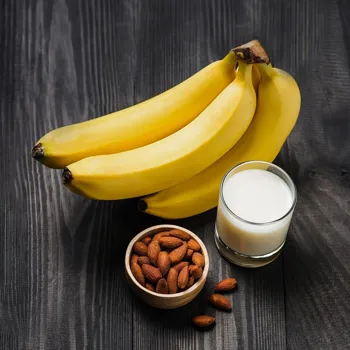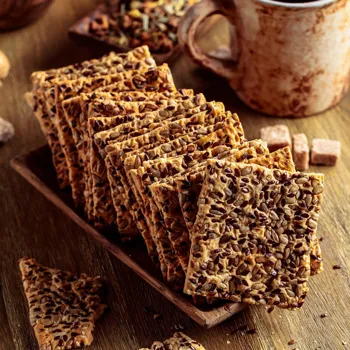Is late-night eating really bad for you? Unravel the truth with 7 key facts. Dive in to make informed choices about your health!
In the bustling landscape of India, where dinner timings can range from early
evening to well past midnight, the age-old question of whether late-night eating is detrimental to health continues to spark debate.

While grandma might have warned against it, are those late-night cravings truly a health hazard, or simply a matter of timing? Let's delve into seven facts to help you unravel this culinary conundrum and make informed choices about your eating habits.
The way people eat and digest food in India is so variable, it's hard to come up with a completely blanket rule on this.
The Calorie Conundrum: It's Not Just When, But What You Eat
The primary concern surrounding late-night eating often revolves around weight gain. However, the core issue isn't necessarily the hour you consume those gulab jamuns or that crispy dosa, but rather the total calorie intake throughout the day.
If you're consistently consuming more calories than you burn, regardless of when you eat them, weight gain will likely occur.
Late-night snacks often tend to be calorie-dense and nutrient-poor – think chips, biscuits, or sugary treats – making them easier culprits for exceeding your daily calorie needs.
Focus on overall dietary balance and portion control to manage your weight effectively, rather than solely fixating on the timing of your meals. A balanced diet is a must, whether you are eating during the day to night.
Digestion Disruption: Giving Your Gut a Break
Your body operates on a circadian rhythm, a natural internal clock that regulates various physiological processes, including digestion. Some studies suggest that eating late at night can disrupt this rhythm, potentially affecting the efficiency of digestion.

When you eat close to bedtime, your body doesn't have ample time to properly digest the food before you lie down. This can lead to indigestion, bloating, and even acid reflux. Try to give your system at least 2-3 hours to process your food before hitting the hay.
Opting for lighter, easily digestible options like a small bowl of dal or curd can also help minimize discomfort.
Sleep Sabotage: The Restful Night Factor
A heavy meal close to bedtime can negatively impact your sleep quality. The digestive process requires energy, and if your body is still working hard to break down food while you're trying to sleep, it can interfere with your ability to fall asleep and stay asleep.

This can lead to restless nights, daytime fatigue, and even long-term sleep disturbances. Prioritize a relaxing bedtime routine and avoid large, heavy meals in the hours leading up to sleep.
If you need a late-night snack, choose something light and sleep-promoting, like a handful of almonds or a cup of chamomile tea.
Blood Sugar Blues: A Matter of Insulin Sensitivity
Research indicates that insulin sensitivity, the body's ability to effectively use insulin to regulate blood sugar, may be slightly lower in the evening compared to earlier in the day.

This means that consuming sugary or carb-heavy foods late at night could lead to higher blood sugar levels and potentially increase the risk of insulin resistance over time. Opt for meals rich in protein and fiber in the evening.
The Mindful Munching Angle: Why Are You Eating?
Often, late-night eating isn't driven by genuine hunger but rather by boredom, stress, or emotional triggers. Mindless munching in front of the TV or reaching for comfort food after a long day can easily lead to overeating and weight gain.
Before grabbing that late-night snack, take a moment to assess your hunger levels. Are you truly hungry, or are you simply seeking emotional comfort?
If it's the latter, try engaging in alternative activities like reading, taking a relaxing bath, or listening to music to address the underlying emotional needs without resorting to food.
Metabolic Mayhem: A Complex Picture
While some studies suggest that late-night eating can negatively impact metabolism, the overall picture is still complex and requires further research. The effects on metabolism can vary depending on individual factors like age, genetics, activity levels, and overall dietary habits.
A healthy lifestyle is the answer.
The Individual Equation: Listen to Your Body
Ultimately, the impact of late-night eating is highly individual. What works for one person may not work for another. Some individuals may be able to tolerate late-night meals without any adverse effects on their weight, sleep, or digestion, while others may experience significant problems.

Pay attention to your body's signals and experiment to find what works best for you. Keep a food diary to track your eating habits and how they affect your sleep, energy levels, and overall well-being.
This will help you identify potential triggers and make informed choices about your eating habits.
Some Practical Tips for Late-Night Diners:
Plan Ahead: If you know you'll be eating late, plan your meals in advance to ensure they're balanced and nutritious.
Portion Control: Be mindful of portion sizes, especially for carbohydrate-rich foods.
Choose Wisely: Opt for lighter, easily digestible foods like soups, salads, or lean meats. Make sure it's healthy.
Hydrate: Drink plenty of water throughout the day, but avoid excessive fluid intake close to bedtime to minimize nighttime bathroom trips.
Listen to Your Body: Pay attention to your hunger and fullness cues.
Prioritize Sleep: Aim for 7-8 hours of quality sleep each night.
De-stress: Find healthy ways to manage stress and avoid emotional eating.
In conclusion, the verdict on late-night eating isn't a simple yes or no.
While certain aspects of late-night eating may pose potential health risks, the key lies in mindful eating, balanced nutrition, and listening to your body's individual needs.
By focusing on the "what" and the "why" of your late-night snacks, rather than solely fixating on the "when," you can make informed choices that support your overall health and well-being.
So next time you're pondering that late-night meal, take a moment to consider these seven facts and make a decision that feels right for you.
Each para is well under 350 characters, actually.











